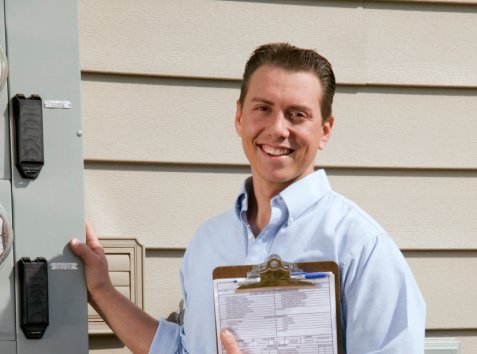
Your integrity is what makes you one of the best.
Not every home inspector joins one of the national organizations, such as the American Society of Home Inspectors (ASHI), just as not every state requires licensure. But any time there are standards, both the public and the inspectors who work for them have a more uniform and reliable code to live by. It creates continuity, which cultivates integrity.
That’s what the ASHI Code of Ethics does for home inspectors who belong to this organization. But even if you don’t plan to join, the code is worth weaving into your professional life. And if you haven’t received your certification yet, this primer can give you a leg up.
Here’s what all home inspectors who maintain ASHI membership promise to uphold:
Avoid Conflicts of Interest and Other Compromising Activities
A conflict of interest arises any time that a home inspector works acts unscrupulously in order to get some sort of future profit. It might be monetary profit or the promise of future customers. But if it causes the inspector to misreport the actual findings in a house, that’s a conflict of interest.
Conflicts can arise in many different ways. Maybe the inspector is tempted to underreport damage to a home in order to help a real estate agent gain a sale. And this, in turn, could lead to the inspector getting more work from the agent.
The inspector’s main goal is to report the authentic condition of a house. Any deviation from that, whether as a favor to someone else or to obtain a bonus or additional customers, is a conflict of interest and should always be avoided.

Acting in good faith means that your word is reliable.
Always Act in Good Faith
Similar to a conflict of interest, acting in good faith also means the inspector should report everything that he knows and not report what he doesn’t. He should avoid guessing in an area where he doesn’t have experience. If he’s not completely sure, that should be noted.
Regardless of outside influences, the inspector should never embellish the facts. If the house is reported in better or worse condition than it actually is, that’s not the fact-based home inspection he was hired to perform.
Additionally, there’s a bit of inspector / customer privilege that should always be upheld. It’s not the inspector’s right or duty to tell anyone, besides his customer, what’s in the report. One exception, according to the Code of Ethics, is if a hazard exists that might pose an immediate risk.

Integrity with the public is as important as it is with your customers.
Maintain Professionalism with the Public
An inspector’s professional reputation is based as much on the face that he shows to the world as it is on the quality of work that he performs. He should avoid any advertising or marketing that misleads the public, and deceptive practices are never OK.
The Code of Ethics takes this one step further, though. While all inspectors who have membership with ASHI are expected to conform to these rules, they’re also expected to report any other inspector who violates them.
Home inspectors should be honest and objective, and never risk their integrity or comprise the principles of the ASHI Code of Ethics. These are considered the “central pillars of home inspection professionalism” throughout the industry, so they’re taken quite seriously.
Even if you aren’t a member of ASHI, the Code of Ethics is a good one to follow. It’s designed to bolster integrity and professionalism, which benefits all inspectors.
If you’re just starting out and wondering what the ICA School home inspection course is all about, get a free demo and learn whether this is the career move that’s right for you.







